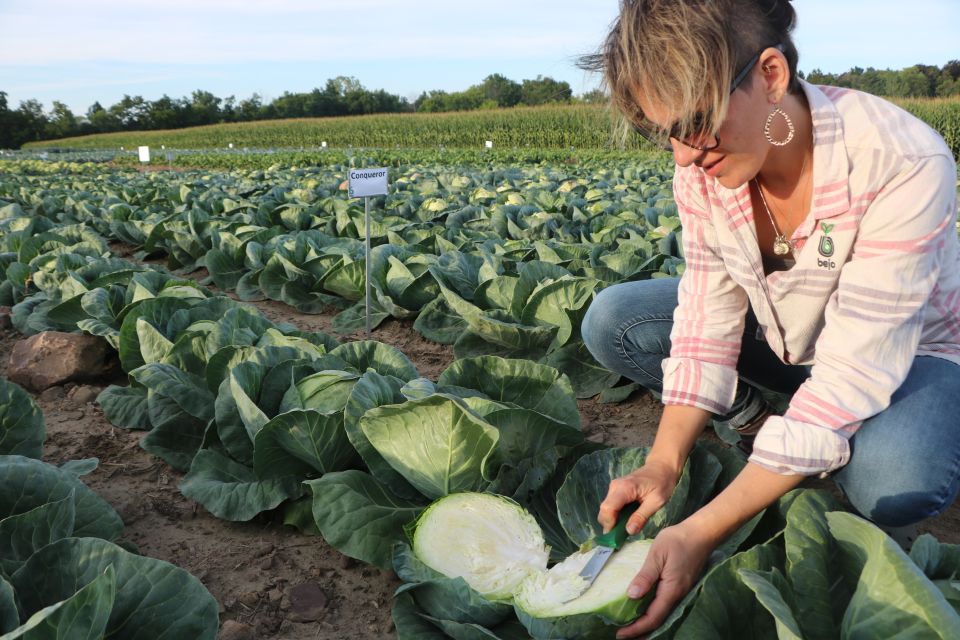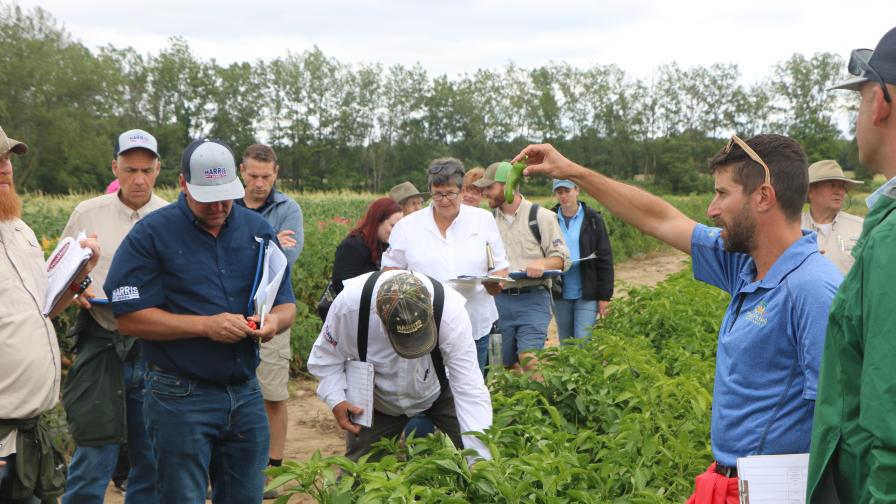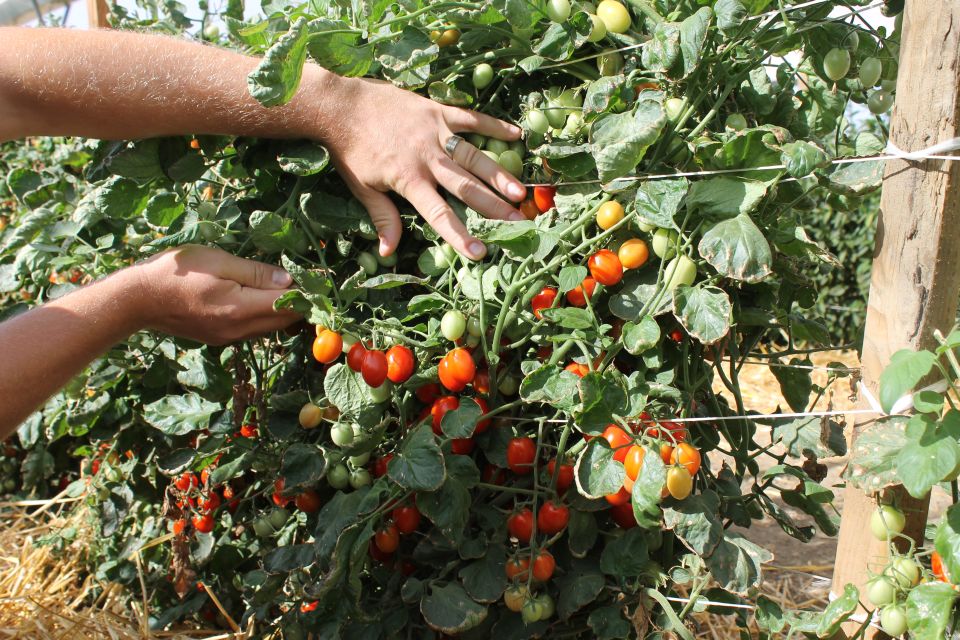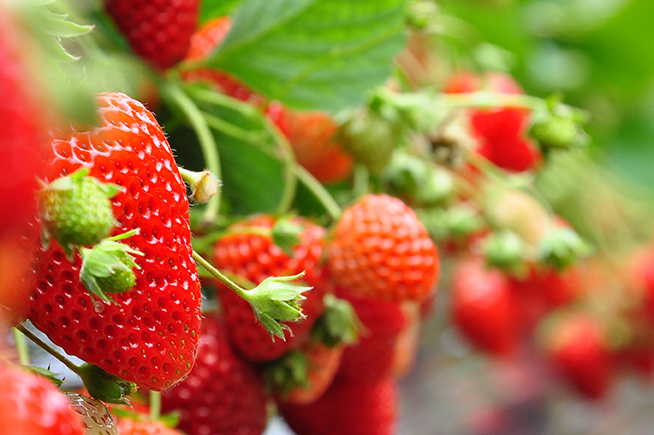Vegetable Breeders Respond to Market Needs with New Varieties

‘Conqueror’ is a new, disease resistant white lettuce variety for fresh market growers. According to the company this early fresh market cabbage is “more productive than ‘Farao,’ with earlier maturity than ‘Gazelle’ or ‘Checkmate,’ and features nicely round heads for a nice fresh look.” It is hardy enough for northeast growers and has variable maturity dates (67, 66, 73 day).
Photo by Matthew J. Grassi
West Coast and East Coast commercial growers press vegetable seed breeders for varieties that ease their challenges. Some need a way to ease harvest. Others want hearty, disease-resistant varieties that can remain viable in cold and damp soils. Some want both. Those two diverging narratives played out in our California and New York vegetable seed field trials coverage this summer, largely driven by the differences between growing on the two coasts.
But breeders are also innovating in other areas. One is in developing and offering more organically grown and certified seed. More and more growers want to capitalize on increased consumer demand as well as the wholesale premiums organic produce demand.
Bejo Seeds is one of several breeders that were present in New York that are innovating in this area. And the Oceano, CA-based outfit didn’t disappoint with its new Organic Oasis field plot at the research farm in Geneva, NY. It showcased the burgeoning organic side of the breeder’s vegetable business.
“Where we see our strengths currently,” Chelsea Lenczyk, a sales and product development rep for Bejo, tells me, “is we bring a wide range of varieties across a wide geography, along with high quality hybrid seed. And we’re expanding into organics heavily.”
Flavor and Color Matter
Another narrative that came out of the New York trials is a focus from seed breeders on developing varieties for both increased flavor and other mostly consumer-valued traits. Good examples of those traits are diverse colors of peppers and even sweet corn, which is reportedly trending away from all white varieties to trendier white and yellow speckled ears.
“Flavor is obviously hugely dominate still,” Lenczyk adds. “And then our commercial growers are always looking for new disease-resistant varieties, and then of course top-end yield remains a huge selling point.”

A rep for PanAmerican Hand Picked Vegetables offers up a pepper variety for tasting during the 2019 New York Summer Field Trials at Seneca Research Farm near Hall, NY. Photo by Matthew J. Grassi
2019 New York Field Trials
The New York trials were a dual site affair, with Bejo hosting folks at its Geneva Research Farm and the rest of the seed companies flung about several small plots in nearby Hall, NY, at the Seneca Vegetable Research Farm.
Still, despite being separated by several miles, the seed company reps at the Hall site echoed much of what we heard the night prior at Bejo.
“Consumers are being more selective, and that is driving a lot of the breeding towards breeding for flavor,” Enza Zaden Organic Product Specialist Adrienne Shelton says.
“Customers are seeking out the restaurants and chefs that are putting out unique and flavorful food, and that’s raising awareness on the seed [breeder] side of making sure we’re offering a much broader spectrum of colors and shapes and flavors in vegetables than in the past,” she adds.
Organic varieties that pass the commercial grower sniff test are also important as Enza Zaden evaluates new varieties (Salinas, CA), according to Shelton.
“That market continues to grow, and there’s no sign yet that it has hit a plateau or hit its ceiling,” she says. “Remember, though, that’s an area of seed production that is not the easiest to jump into. Producing high quality organic seed, there’s just lots of nuances, and it can take years to get it right.”
Johnny’s Selected Seeds (Winslow, ME), Syngenta Vegetable Seeds (Woodland, CA), Seminis Vegetable Seeds (Woodland, CA), as well as Sakata Seed America (Morgan Hill, CA) all offered organic varieties with commercial disease resistance packages during the trials.
2019 California Field Trials
This year’s California Vegetable Field Trials featured a bit of a different bent than what we witnessed in the Empire State, as breeders developing new varieties for the most productive agricultural region in the world are keenly focused on helping growers pick and harvest more efficiently.
According to American Fruit Grower and Western Fruit Grower Editor David Eddy, “Labor savings was a consistent theme harped on by the companies displaying new varieties at the seed trials in Woodland.”

‘Ruby Crush’ is unique in that it is the only determinate grape tomato. Because it’s a compact plant with fruit concentrated throughout, less labor is required for picking. Photo by David Eddy
This Golden State labor crunch is assaulting ag producers from two angles. First, there’s the lack of a reliable labor force. Then growers face a $15 minimum wage requirement for the labor they do secure. It definitely puts a squeeze on profit margins.
So developing varieties that are more compact and grow in a more open manner for ease of harvest is a focus.
“Growers, especially large-acreage types, repeatedly cite a lack of labor when discussing their top problems. Whether it be at time of harvest, helping with ease of picking, or a number of other traits, it was clear that the seed companies had heard the growers loud and clear,” Eddy says.











